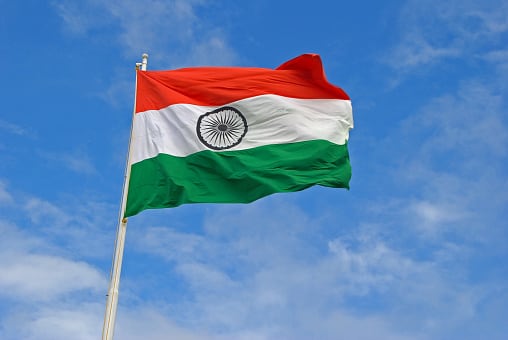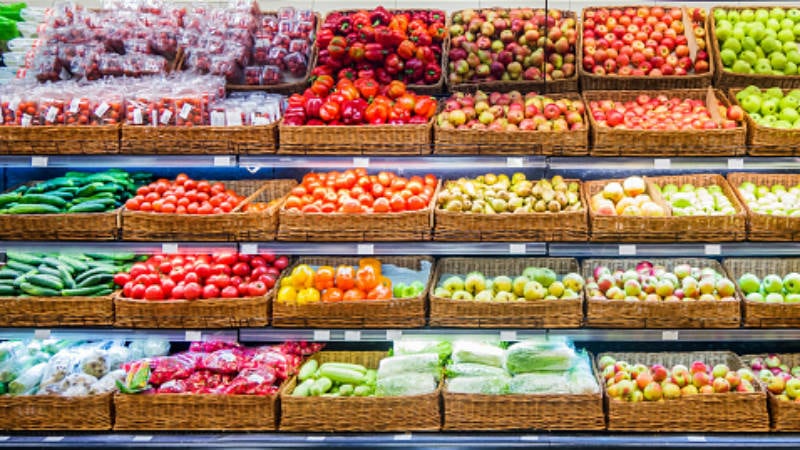The cluster-based approach was first announced by India’s Finance Minister Nirmala Sitharaman as part of the country’s Scheme for Formalisation of Micro Food Processing Enterprises (FME) under India’s INR20tn (US$263.9bn) COVID-19 stimulus and relief package, who also said that INR100m (US$1.32m) would be allocated to this endeavour.
This will be based on a hyperlocalised food production cluster system depending on the specialty agricultural products being produced in each state, such as mango in Uttar Pradesh, chilli in Andhra Pradesh, bamboo shoots in Northeast, tapioca in Tamil Nadu and makhana (fox nuts) in Bihar.
“[This scheme] is based on Prime Minister Narendra Modi’s vision of ‘vocal for local' with global outreach [and will help India to reach] untapped export markets in view of improved health consciousness,” Sitharaman had announced.
Importantly, this scheme is also aimed at helping the numerous micro food processing enterprises in the country, which are largely disorganised at the moment, in areas such as technical upgradation, achieving food quality on par with Food Safety and Standards Authority India (FSSAI) standards, as well as providing marketing and branding support.
According to India Minister for Food Processing Harsimrat Kaur Badal, micro food processing enterprises make up almost 98% of the sector, with 66% of these located in hard-to-access rural areas.
“Their potential has been mostly untapped so far, [but] they shall now act as the new growth engine for India’s rural economy,” Badal said in a CNBC tele-interview.
“This new scheme [will] bring together the collective strength of our Farmer Producer Organisations (FPOs), Self-Help Groups (SHGs), Co-operatives and existing Farmer Producer enterprises in the unorganised sector, to help these micro-enterprises to grow, to contribute towards nation-building, and to make them more sustainable and self-reliant.
“Through this, we will be able to grab a larger piece of global market share, as the entire world is nowlooking at new markets and sources apart from China. India is positioned very strategically, especially in the food sector, as one of the world’s largest food producers. We have lots of raw materials, but our food processing is still at a very nascent stage, [and we hope to change this].”
The food industry in India has been particularly welcoming of the scheme, expressing confidence that this will help the country to make the most of its strengths and to take advantage of the growing health and wellness trend in Asia Pacific.
“[This scheme] leverages on India's bio-diversity through the cluster-based approach, [and taps on the importance of] build on health and wellness product value chains,” said millet snacks brand Soulfull Managing Director and CEO Prashant Parameswaran.
“India’s ancient grains such as ragi and millet have the answer to [health and wellness demands], but marketing this on a global scale requires lots of investments, and the government’s move on this is a positive step – [we just need] to make these known at a global level by offering relevant products to consumers.”
Multinational food products conglomerate ITC Chairman and Managing Director Sanjiv Puri told LiveMint that this was important to reshape the industry and encourage competitiveness. ITC owns brands such as Sunfeast, Bingo, Candyman and Farmland.
“The reforms will encourage investments in food processing and together with the infrastructure outlays will contribute in shaping a competitive agri-value chain, reduce wastages and raise farmer incomes” Puri said.
Herbs also see a boost
Conventional food crops are not the only beneficiaries of this scheme – India’s traditional herbs market will also receive a boost in the form of INR4bn (US$52.8mn) worth of government investments into herbal cultivation, aimed to span some one million hectares of land over two years.
In a statement, herbal products firm Dabur said that this would greatly benefit the country’s Ayurvedic industry.
“Promoting cultivation of medicinal plants is a big positive and will help the Ayurvedic products and medicines manufacturers by ensuring availability of key raw material,” Dabur CEO Mohit Malhotra said.
“Encouraging more farmers to enter this field will ensure a steady increase in the population of native herbs, besides boosting farmer income.”
Still not enough for some
Despite all this, it appears that some Indian states still do not feel that this is enough support - for example the state of Bihar, where state Industries Minister Shyam Rajak has asked Sitharaman to extend further support to Bihar to develop it as a regional food processing hub.
“Bihar is the largest producer of Rabi Maize, fourth largest producer of honey and vegetables, seventh largest producer of food grains and eighth largest producer of fruits and dairy in India,” Rajak said to Times of India.
“All major food processing companies, including ITC, Britannia, Coca Cola and Pepsi among others are running their plants in Bihar, [which] is very strategically located for exports to Nepal, Bhutan and Bangladesh.
“However, we have not received any leads (sic) from Invest India under Make in India initiative [and would like to be made a] 13th candidate site to be considered for Japanese Industrial Township in India, [which] will boost Bihar as a food processing hub in the region.”
Rajak also requested that a fixed amount of funds be given to Bihar to loan to its micro, small and medium enterprises (MSMEs), as well as for the cluster development of its micro food enterprises, suggesting extra food items to be developed under this scheme such as Shahi Lithci Bihar honey, Jardalu mangoes, and Nalanda red potatoes.
Sitharaman has not publicly responded to Rajak’s requests as of time of publishing.





